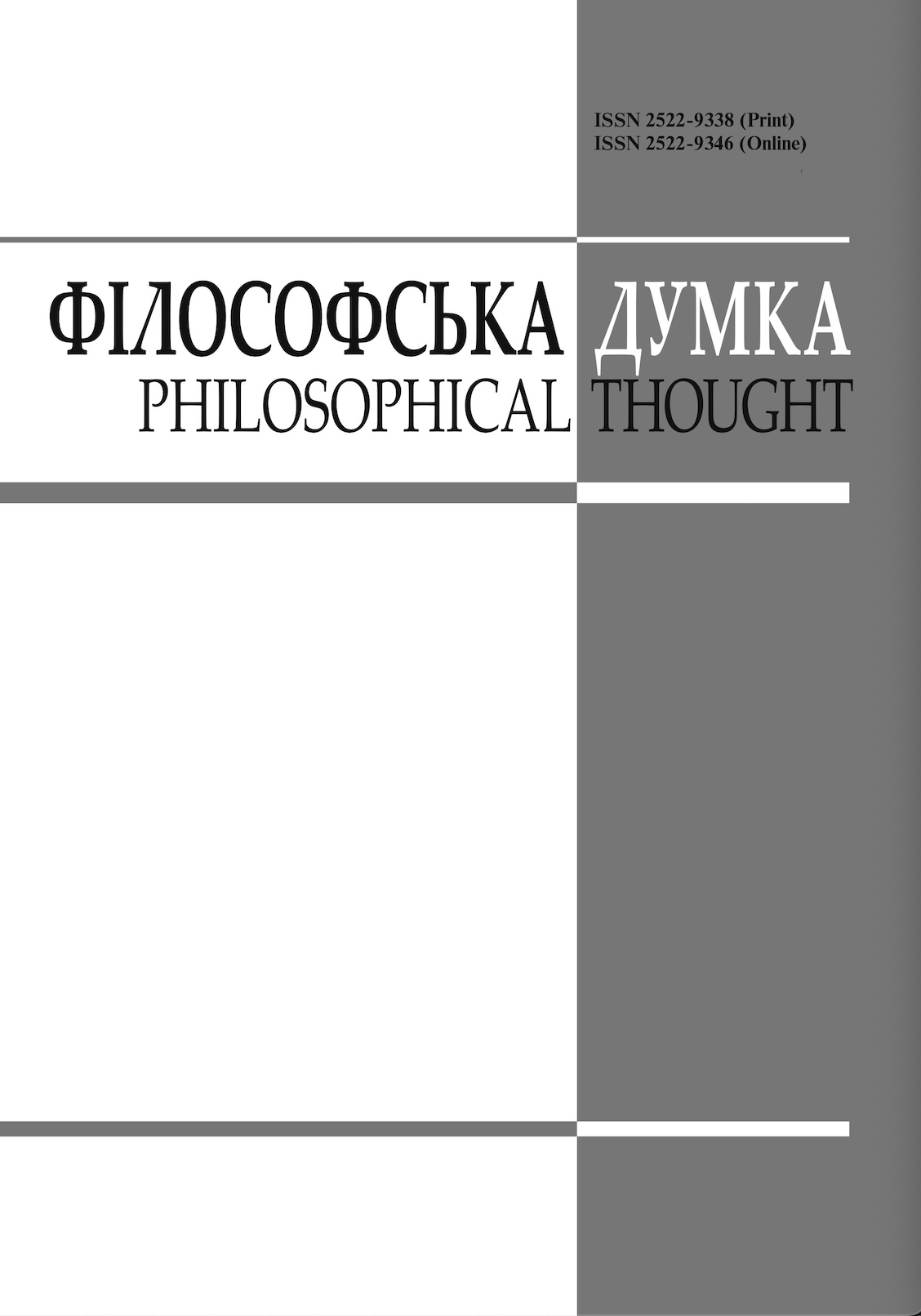PHILOSOPHER AND POWER
ESSAY
Keywords:
‘conceptual personae’ (Deleuze, Guattari), philosopher, power, discipline and punish’ (Foucault), ‘compulsion to repeat’ (Freud)Abstract
Based on Deleuze and Guattari’s idea of ‘conceptual personae’– necessary for philosophy and possible today – the essay suggests considering a character who has long been well-known in Ukrainian culture. This is philosopher Khoma Brutus from Gogol’s story ‘Viy’. All the individual events depicted there can be perceived as harsh persecution of him by various powers; however, unlike the celebrated Socrates, who can defend himself in court and express his opinion, Khoma is unable and unwilling to speak. This figure and the corresponding situation can explain a lot in our philosophy.
References
Canetti, E. (2001). Crowds and Power. [In Ukrainian]. Kyiv: Alternatyvy.
Deleuze, G., Guattari F. (1996). Anti-Oedipus. [In Ukrainian]. Kyiv: KARME ‒ SINTO.
Deleuze, G., Guattari F. (2015). What is Philosophy? [In Ukrainian]. Lviv: Astrolabe Publishing.
Freud, S. (2019). Beyond the Pleasure Principle. [In Ukrainian]. Kharkiv: Folio.
Foucault, M. (2020). Discipline and Punish: The Birth of the Prison. [In Ukrainian]. Kyiv: Komubook.
Gogol, M. (2008). Viy. [In Ukrainian]. In: M. Gogol, Collection of Works: in 7 vols. (vol. 2, pp. 127‒160). Kyiv: Naukova dumka.
Yermolenko, V. (2024). Eros and Psyche. Love and Culture in Europe: Essays. [In Ukrainian]. Lviv: The Old Lion Publishing House.
Downloads
-
PDF (Українська)
Downloads: 8
Published
How to Cite
Issue
Section
License
Authors who publish with this journal agree to the following terms:
- Authors retain copyright and grant the journal right of first publication.
- Authors are able to enter into separate, additional contractual arrangements for the non-exclusive distribution of the journal's published version of the work (e.g., post it to an institutional repository or publish it in a book), with an acknowledgement of its initial publication in this journal.
- Authors are permitted and encouraged to post their work online (e.g., in institutional repositories or on their website) prior to and during the submission process, as it can lead to productive exchanges, as well as earlier and greater citation of published work (See The Effect of Open Access).


